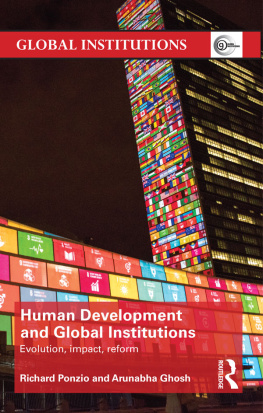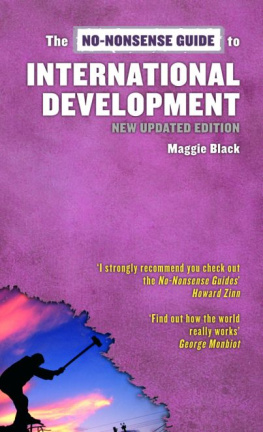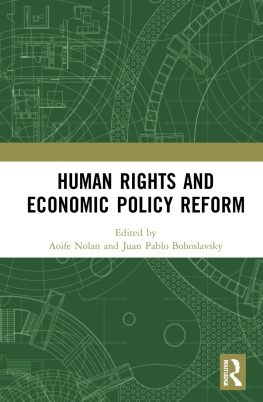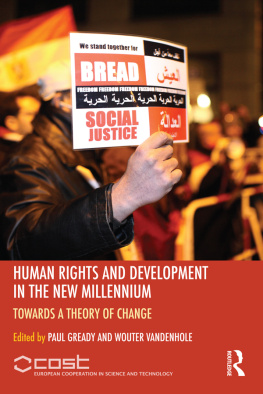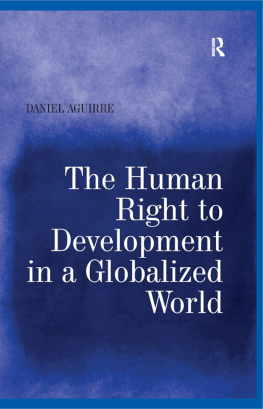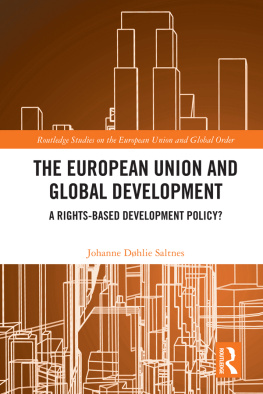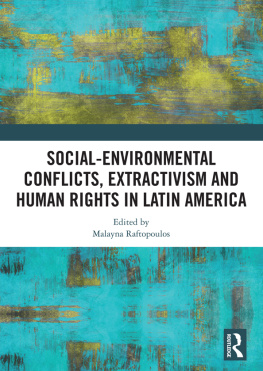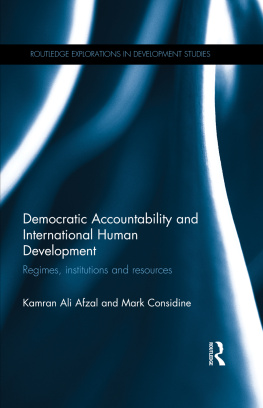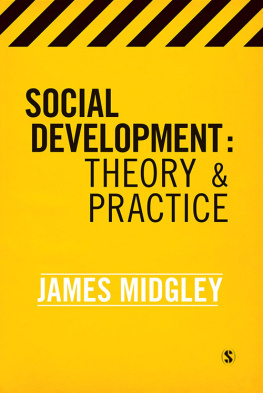Human Development and Global Institutions
This book provides a timely and accessible introduction to the foundational ideas associated with human development. It examines the concepts evolution during the post-colonial era, and discusses how various institutions of the UN system have tried to engage with this issue, both in terms of intellectual and technical advances, and operationally. Showing that human development has had a profound impact on shaping the policy agenda and programming priorities of global institutions, Ponzio and Ghosh argue that human development has helped to preserve the continued vitality of major multilateral development programs, funds, and agencies.
It also details how human development faces new risks and threats, caused by political, economic, social, and environmental forces, that are highlighted in a series of case studies on trade, water, energy, the environment, democracy, human rights, and peacebuilding. The book also makes the case for why human development remains relevant in an increasingly globalized world, asking whether global institutions will be able to sustain political and moral support from their member states and powerful nonstate actors. The authors argue that fresh new perspectives on human development are now urgently needed to fill gaps across borders and entire regions. A positive, forward-looking agenda for the future of global governance would have to engage with new issues such as the Sustainable Development Goals, energy transitions, resource scarcity, and expansion of democratic governance within and between nations.
By redefining what constitutes human progress in an increasingly interdependent world, this book serves as a primer for scholars and graduate students of international relations and development. It is also relevant to scholars of economics, political science, history, sociology, and womens studies.
Richard Ponzio is head of the Global Governance Program at The Hague Institute for Global Justice, where he serves as project director for the Commission on Global Security, Justice & Governance. He is formerly a senior adviser in the US State Departments Office of the Special Representative for Afghanistan and Pakistan. Richard has served with the UN in Afghanistan, Bosnia, Kosovo, New York, Pakistan, Sierra Leone, and the Solomon Islands.
Arunabha Ghoshis CEO, Council on Energy, Environment and Water, India. Widely published, with work experience in 35 countries and having previously worked at Princeton, Oxford, the UN Development Programme, and the World Trade Organization, Arunabha advises governments, industry, and civil society around the world on: energy and resources security, renewable energy, water governance, climate governance, energy-trade-climate linkages, and international regimes. He is, most recently, co-author of Climate Change: A Risk Assessment (2015).
Global Institutions
Edited by Thomas G. Weiss
The CUNY Graduate Center, New York, USA
and Rorden Wilkinson
University of Sussex, Brighton, UK
About the series
The Global Institutions Series provides cutting-edge books about many aspects of what we know as global governance. It emerges fromour shared frustrations with the state of available knowledgeelectronic and print-wise, for research and teachingin the area. The series is designed as a resource for those interested in exploring issues of international organization and global governance. And since the first volumes appeared in 2005, we have taken significant strides toward filling conceptual gaps.
The series consists of three related streams distinguished by their blue, red, and green covers. The blue volumes, comprising the majority of the books in the series, provide user-friendly and short (usually no more than 50,000 words) but authoritative guides to major global and regional organizations, as well as key issues in the global governance of security, the environment, human rights, poverty, and humanitarian action among others. The books with red covers are designed to present original research and serve as extended and more specialized treatments of issues pertinent for advancing understanding about global governance. And the volumes with green coversthe most recent departure in the seriesare comprehensive and accessible accounts of the major theoretical approaches to global governance and international organization.
The books in each of the streams are written by experts in the field, ranging from the most senior and respected authors to first-rate scholars at the beginning of their careers. In combination, the three components of the seriesblue, red, and greenserve as key resources for faculty, students, and practitioners alike. The works in the blue and green streams have value as core and complementary readings in courses on, among other things, international organization, global governance, international law, international relations, and international political economy; the red volumes allow further reflection and investigation in these and related areas.
The books in the series also provide a segue to the foundation volume that offers the most comprehensive textbook treatment available dealing with all the major issues, approaches, institutions, and actors in contemporary global governanceour edited work International Organization and Global Governance (2014)a volume to which many of the authors in the series have contributed essays.
Understanding global governancepast, present, and futureis far from a finished journey. The books in this series nonetheless represent significant steps toward a better way of conceiving contemporary problems and issues as well as, hopefully, doing something to improve world order. We value the feedback from our readers and their role in helping shape the on-going development of the series.
A complete list of titles appears at the end of this book. The most recent titles in the series are:
Human Development and Global Institutions (2016)
by Richard Ponzio and Arunabha Ghosh
NGOs and Global Trade (2016)
by Erin Hannah
Brazil as a Rising Power (2016)
edited by Kai Michael Kenkel and Philip Cunliffe
Summits and Regional Governance (2015)
edited by Gordon Mace, Jean-Philippe Thrien, Diana Tussie, and Olivier Dabne
Global Consumer Organizations (2015)
by Karsten Ronit
World Trade Organization (2nd edition, 2015)
by Bernard M. Hoekman and Petros C. Mavroidis
Women and Girls Rising (2015)
by Ellen Chesler and Terry McGovern

